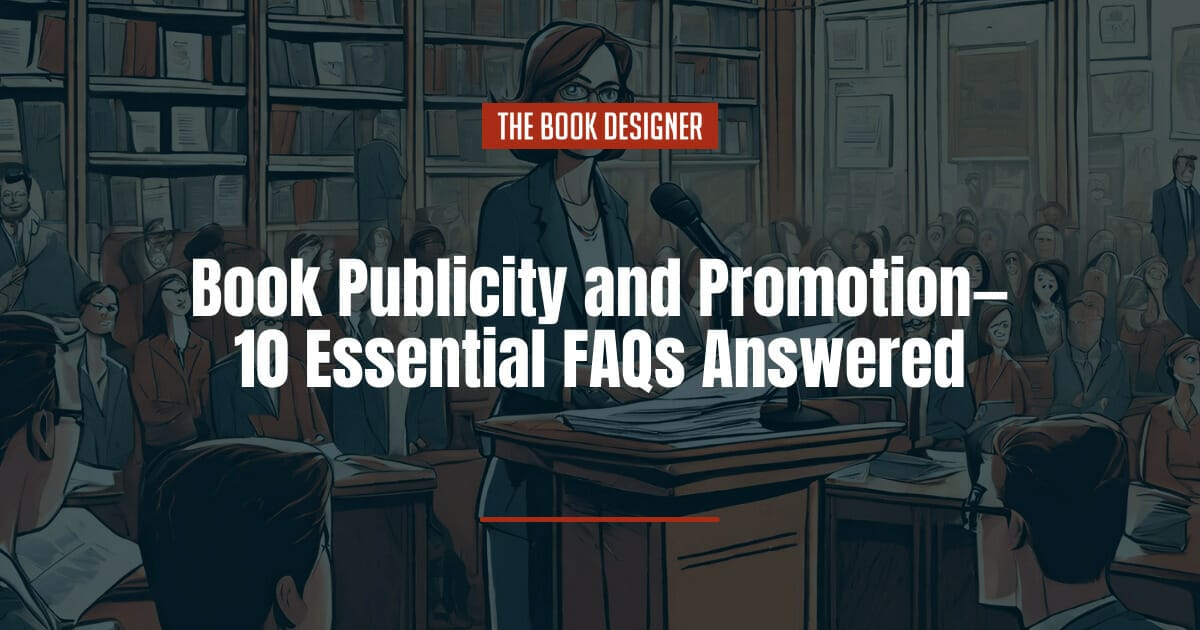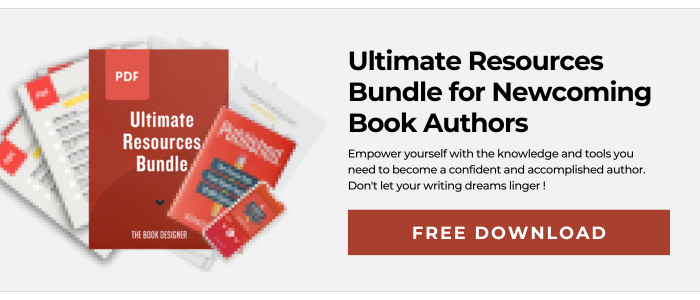What’s the one question authors ask me most frequently?
“How long do I have to market my book?”
I never deviate from this answer: “Only for as long as you want to sell it.”
Every author hates hearing that. By the time most get around to asking it, usually a few weeks from their launch date, they’re exhausted and broke. By then, it’s much too late.
To save you time, trouble and disappointment, I’ve collected the most frequently asked questions I hear about book publicity. But first, let me explain why you have to market your book only for as long as you want to sell it.
Close to 4 million books are published each year in the United States. That’s over 333,000 books a month! Over half of those are published by indie authors.
If only a fraction of those authors promote their books with blog tours, articles, book reviews, YouTube videos, print and online publicity, and social media content—and you’re doing nothing—your book languishes. And then it dies.
Below are nine other frequently asked questions about book publicity and promotion:
Other Frequently Asked Questions
Now, then, here are the other nine frequently asked questions.
2. “When do I have to start my publicity?”
Ideally, one year before you launch, especially if you don’t have a social media presence. But few authors do that.
If you’ve stalled and can’t meet that schedule, start from 6 to 8 months before launch. You can complete the following tasks you don’t want to put off until later when you’ll be slammed with last-minute marketing to-do’s:
- Create social media accounts on a few sites where your target audience can be found, and start sharing content tied to your book and your expertise.
- Write your author bios in various lengths: a two-liner, a short bio, medium-length and long.
- Start answering media queries from HARO (Help a Reporter Out).
- Plan the PR elements of your website’s book page(s).
- Solicit blurbs and endorsements from experts.
- Pitch story ideas about your topic to major magazines which have long lead times.
- Research media outlets, blogs and podcasts where you want exposure.
3. “Should I use a free or paid press release distribution service?”
Until recently, I was dead set against using any of the dozens of free services because most don’t distribute anything. They simply park your release at their website where it might or might not be found by the search engines. Even worse, your press release might be next to a paid ad from one of your competitors. And if you find a typo in your release after you’ve published it, you probably won’t be able to correct it.
Two things made me change my mind:
- A story I discovered at Sandra Beckwith’s blog about how author Judith Marshall used PR.com, a free press release service, to get a movie option for her book Husbands May Come and Go But Friends are Forever.
- FitSmallBiz.com reviewed more than 90 of the free options and found only seven reputable choices:
- PRLog: Best free press release distribution services overall
- OpenPR: Free Google News distribution
- IssueWire: One-time free press release
- OnlinePRNews.com: Free short-term publishing
- 1888PressRelease.com: Best for search engine distribution
- PR.com: Free industry targeting
- NewswireToday.com: Best for nonprofits
They then reviewed those five on criteria such as the size of their distribution network, level of customization, and ease of use. I haven’t tested any of these but you might want to.
Still, I prefer one of the paid services like Dan Janal’s Guaranteed Press Releases or Mickie Kennedy’s eReleases.com. Both distribute your release through PRNewswire.
4. “I paid more than $300 to publish my release to one of the paid services and no one has reprinted it. What should I do?”
Be patient. The main reason you’re publishing your press release isn’t so media reprint it. Few if any will. You’re publishing it so it pulls traffic to your website and serves as collateral material for a well-written, customized pitch to a journalist, reviewer, influencer or someone else who can help you.
5. “What’s the difference between a press release for my book and a pitch?”
A press release is a digital file that explains the main information about your book such as the topic or storyline, the genre, price, ISBN, publishing company, why you wrote it and where people can buy it. Most authors only write one version of a press release. They link to it from a customized pitch to a specific media outlet or journalist.
Let’s say your book is a romance novel. You can send a short email pitch of three paragraphs to an editor of a woman’s magazine and pitch your quiz called “Are You Dating the Wrong Men?” Within the pitch, link to the press release at your website or elsewhere online.
If you’re pitching your local weekly newspaper because you’re doing a book signing in your town, you can send a different email pitch highlighting the fact that you’re a local author, mention the event, and link to the same press release. See my two articles The pros and cons of press releases vs. pitches and When to use a press release and when to deliver a pitch.
6. “I can’t afford those big media databases of $1,000 or more. How can I get names and contact information for journalists?”
Those expenses databases are used mostly by PR firms and publicists. You don’t need them. Besides, I don’t recommend pitching dozens or hundreds of media outlets because you won’t have the time to send a customized pitch to each one.
USNPL.com is the best free resource for contact information for thousands of media outlets in the United States. It’s short for U.S. Newspaper List. Read more about it in my article The Best Free Media Contacts Tool You Probably Aren’t Using.
Another terrific free resource is the Society of Professional Journalists Freelance Directory which lets you search by topic.
Need radio shows? Try Radio-Locator.com, which has links to more than 15,300 radio stations’ web pages and more than 11,000 station’s audio streams from radio stations in the U.S. and around the world.
If you’re pitching TV stations, start in your own community first and get experience in a smaller market before you pitch big shows or stations in major markets.
7. “Where can I find readers in my target market?”
They’re probably in your own community and all over the Internet. Here’s a partial list:
- In MeetUp groups.
- In special interest groups in your community. Did you write a business book? Speak to Chambers of Commerce, Rotary groups and entrepreneur roundtables.
- In special interest groups on Facebook and LinkedIn.
- In discussion groups on Goodreads.
- At blogs and websites. Start with a Google search. I searched for “where to find Christian blogs” and discovered Top 100 Christian Women Blogs, Websites & Newsletters.
- In audiences that listen to podcasts. Search for specific shows in your favorite podcast directory.
- In Internet discussion groups devoted to your topic. Find these through an online search Example: “Internet discussion groups for knitters”.
- In book clubs. Here’s a free searchable directory of book clubs.
8. “I don’t know my target market. Can you help me identify it?”
If the author asking this already has published the book, I feel like crying. How can you write a book if you don’t know who you’re writing it for? I usually suggest a consulting session so I can learn more about the book and why the author wrote it.
9. “If a journalist gives me publicity, is it OK if I send a thank you gift?”
No. Many media outlets have ethics policies that prohibit journalists from accepting anything of value, including free meals. If you’re dealing with a blogger or a podcaster who has featured you, however, the same rules don’t apply. I simple thank you is all that’s necessary.
10. “I received fabulous publicity from (newspaper, magazine, TV station, radio station). What can I do to get extra mileage from it?”
You’ll find 11 ideas in my article How to Recycle, Repurpose and Promote Your Publicity.
Book Publicity and Promotion—Final Thoughts
Finally, if you’re lucky enough to afford a publicist, you can learn more about how to choose one in my article How to Hire a Book Publicist Before You Sign an Agreement. Realize, however, that the publicist will concentrate on bigger media outlets. You can work alongside her pitching smaller outlets and doing other publicity tasks. Also, you’ll have to do your own publicity when her contract expires.
What questions do you have about book publicity? I’ll answer them here.



